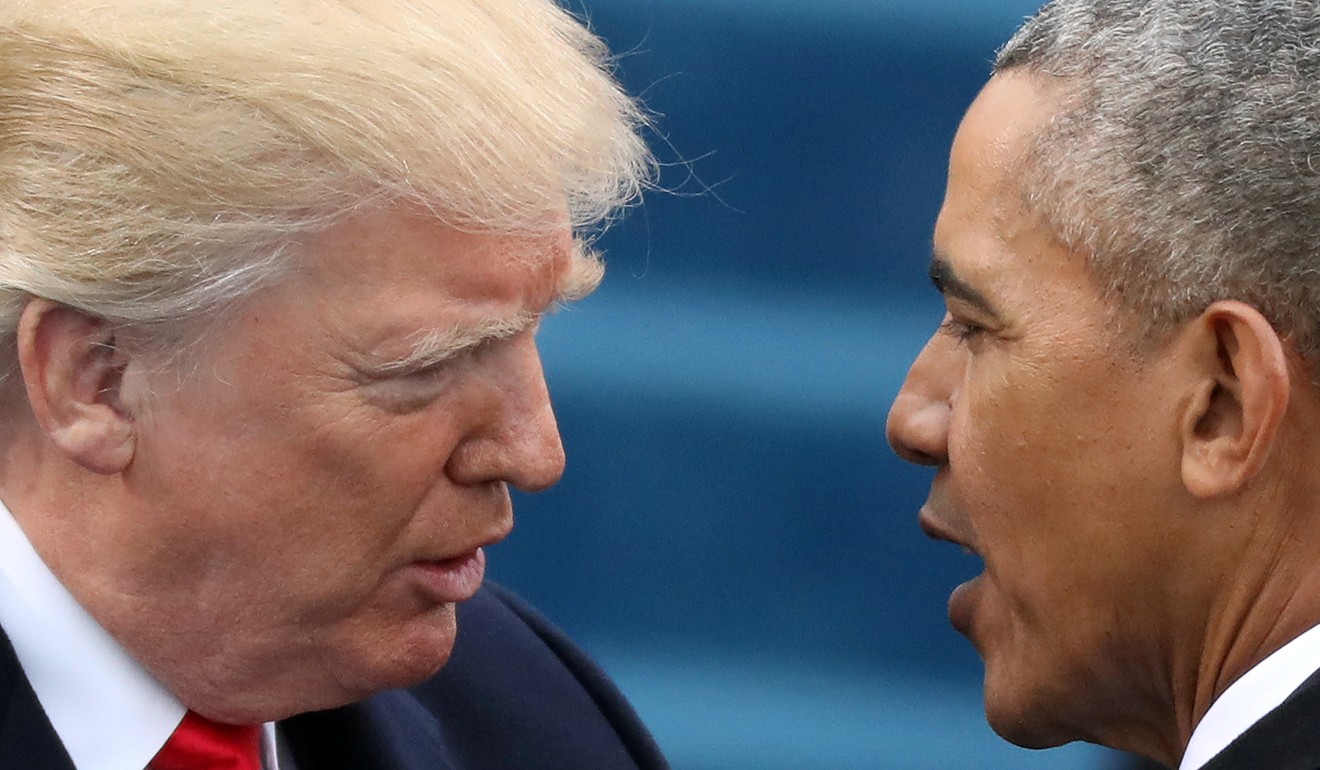
Politico | Why Donald Trump still needs Obamacare
- To bring down drug prices and fight opioids, the White House uses provisions of the health law it constantly attacks
This story is published in a content partnership with POLITICO. It was originally reported by Sarah Karlin-Smith, Rachel Roubein and Brianna Ehley on politico.com on December 17, 2018.
Trump wants lower drug prices, drastic action on the opioid crisis and protection for people with pre-existing conditions.
Those are the parts of the law many Republicans do want to keep, but with the entire law invalidated – pending appeal – Trump and Republicans are trying to figure out how to live with a judicial ruling they kind of wanted, but didn’t want in such a big way.
The blunt force of the Texas ruling, without consideration for the dozens of popular provisions sprinkled throughout the law, shows just how intertwined the Affordable Care Act has become as part of the American health care system.
And nobody on the Republican side has a clear plan on what to do now.
Nothing is changing yet. But if the ruling does stand following appeals, or if the Trump administration reverses course and refuses to enforce more parts of the law, because of the Texas case, seniors would immediately be on the hook for thousands of dollars in additional drug spending.

Millions of Americans would lose Medicaid coverage – the largest payer of addiction treatment in the country.
Meanwhile, the administration would also lose access to a powerful weapon for reforming the US health system – the CMS Innovation Centre.
Created by the health law, it gives the government broad powers to test new health policies, whether it be doctor payment models or new cancer drug pricing ideas, and scale them up nationally without congressional approval.
But without Obama’s signature law, the Trump administration would be left scrambling to achieve its health care goals, while simultaneously dealing with a system thrust into chaos.
And even as the Trump administration bashes the ACA, it’s leaning hard on it to accomplish these goals.
The court’s decision “is a cloud over the efforts to keep moving forward on health reforms and it’s going to create confusion and probably delay,” said John Rother, president and CEO of the National Coalition on Health Care, adding, “Now I wonder how we’re going to be able to keep up the momentum” on issues such as drug pricing and payment reform.

“The breadth of the act is extraordinarily sweeping, and it will affect every aspect of the health system if it’s struck down, including many things this administration has publicly championed or made priorities,” said Rachel Sachs, a health policy expert and law professor at Washington University in St. Louis.
Without Obamacare, Americans would see drug spending go up with seniors and state governments taking the brunt of the blow.
Without Obamacare, many seniors would likely spend around US$2,000 or more in out-of-pocket drug costs each year, said Juliette Cubanski, associate director of Medicare policy at the Kaiser Family Foundation.
That’s because the ACA required drug makers to provide big discounts to seniors in the coverage gap phase of their Medicare Part D benefit.
In 2016, more than 5 million Medicare recipients reached the coverage gap, with drug makers providing $5.7 billion in discounts to offset the costs of their medicines, Cubanski said.
States’ Medicaid programmes, which are a big part of state budgets, would also take a hit because drug companies could go back to giving them the smaller pre-Obamacare discounts on medications, and these discounts wouldn’t apply to Medicaid managed care programmes.
Meanwhile, the biosimilar market, which Trump’s FDA chief, Scott Gottlieb, has spent months trying to invigorate and improve, would collapse as Obamacare established the pathway to bring cheaper versions of biologic medicines to patients.
Those drugs are often the most expensive medicines in the US.
“As if it’s not challenging enough already for biosimilars to get approved and actually come to market in this country, this would make it even more challenging,” Cubanski said.
Without Obamacare’s Innovation Centre, Trump would likely need congressional approval to implement such a sweeping national test on drug prices – a long shot given recent scepticism from his own party, the drug industry, and patient and doctor groups.
The Innovation Centre is also a key component of the Trump administration’s plan to move the health system away from paying for the sheer number of services provided, and instead incentivise good care – and it could unveil new projects as soon as the first three months of 2019.
“There's a lot of basic payment plumbing in the ACA. Ripping it out would be enormously disruptive,” Nicholas Bagley, a professor of law at the University of Michigan Law School, wrote in an email.
Doctors and hospitals are still committed to the payment reform effort, several sources told POLITICO, as they’ve already devoted ample time, money and resources into moving toward value-based care.
CMMI projects have been underway for years, so eliminating the centre would, as Bagley put it, still be an “enormous procedural headache”.
There is a possibility that a higher court could keep parts of the health law, such as CMMI, but rule other parts of Obamacare invalid, like the popular protections for pre-existing conditions.
While the Trump administration has committed to ensuring those people would still have health coverage, it hasn’t offered any suggestions on how to preserve those protections in a concrete way without Obamacare – which Democrats capitalised on during the midterm elections.
On the opioid front, Trump has repeatedly promised to end the scourge of addiction. But experts say any rollback in Medicaid coverage, the biggest payer of behavioural health care, would almost certainly set back his efforts to address the crisis killing 115 Americans every day.
Roughly 1.2. million people with addiction and mental health issues are covered under Medicaid expansion.
Medicaid is the “bedrock” of addiction treatment, said Andrew Kessler, founder of Slingshot Solutions, a consulting firm specialising in behavioural health.
“You can’t do a single thing to inhibit Medicaid If you say you want to see improvement in substance use disorder treatment. The two don’t go together.”
Advocates say scrapping the law would also be harmful to the tens of thousands of people in the private insurance market seeking help for drug addiction, since Obamacare requires insurers to cover treatment as part of 10 essential health benefits.
“Any backtracking on this would be a significant blow to patients,” said Mark Covall, president and CEO of the National Association for Behavioural Healthcare.

